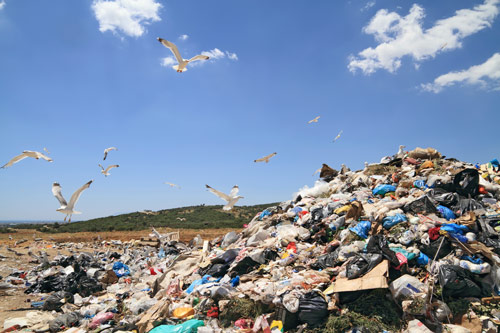Food waste has a directly negative impact on our environment. This Earth Day (April 22), let’s work together to spread awareness about this prominent and often overlooked issue.
The Food and Agriculture Organization of the United Nations (FOA) defines food waste as, “discarding of food that is safe and nutritious for human consumption along the entire food supply chain, from primary production to end household consumer level.” Globally, the highest levels of food waste occur in both Europe and North America. According to ReFED, the United States “spends $218 billion a year growing, processing, transporting, and disposing of food that is never eaten.” The irony of this situation lies in the fact that currently one in seven Americans are food insecure.
There are various ways in which the multi-billion dollar issue of food waste negatively impacts our environment as a whole. To begin, the billions of dollars spent on farm production of food (which only ends up being disposed of), represents 1.3% of GDP. Ultimately, “the financial cost of food waste ends up costing consumers the most due to retail pricing versus wholesale pricing for consumer-facing businesses.” Overall, the financial burden of food production is incredibly high, especially for food that is not being eaten.

Equally troubling is what this absurd amount of waste is doing to our environment. A report from the FAO estimated that, in 2007, the carbon footprint of food waste was 7% of all global emissions. A recent study by the Potsdam Institute for Climate Impact Research showed that more than 20% of all greenhouse gas emissions are produced by agricultural activities. Additionally, as the Environmental Protection Agency points out, most of the material filling our landfills is organic matter, such as food waste. When that material gets buried in the dump, it decomposes anaerobically and releases methane, a greenhouse gas 25x more harmful than carbon dioxide.
In honor of Earth Day, please help us spread awareness about the negative environmental impact food waste creates. By working together to reduce the amount of food we waste, we can also provide nutritious food to the millions of Americans struggling to find their next meal, while simultaneously improving the quality of our environment.
Read more about food waste or fight hunger in your community!
